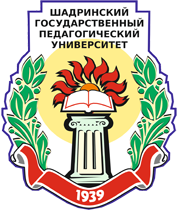Парадокс отношения родителей к одаренности младших школьников
The paradox of the parents’ attitude to the primary schoolchildren giftedness
Аннотация
В статье рассматривается проблема парадоксального отношения родителей к одаренности младших школьников. Известно, что воспитание детей сопровождается влиянием семьи. Поэтому даже с выраженными задатками ребенок без поддержки референтной группы может обесценить свои способности, что в последующем может привести к дефициту одаренных кадров в стране. Кадровый потенциал страны – это двигатель прогресса во всех сферах деятельности государства: политике, экономике, медицине, образовании, машиностроении и т.д. Поэтому, развитие одаренных детей является приоритетным направлением государства.
В статье определены мнения родителей учеников начальной школы относительно вероятной одаренности их детей. Данный подход позволяет комплексно подойти к рассмотрению проблемы одаренности младших школьников.
Особое внимание автор уделяет переходу на обязательную подготовку родителей к взаимодействию с детьми, чьи способности выражены больше среднестатистической нормы. Данный подход требует от педагогических кадров новых технологий образования взрослых, обновления целей, подходов и личной заинтересованности в результате.
Abstract: The article examines the problem of the paradoxical attitude of parents to the giftedness of junior students. It is known that the upbringing of children is accompanied by the influence of the family. Therefore, even with pronounced inclinations, a child without the support of a reference group can devalue his abilities which in the future can lead to a shortage of gifted personnel in the country. The personnel potential of the country is the engine of progress in all spheres of state activity: politics, economics, medicine, education, mechanical engineering, etc. Therefore, the development of gifted children is a priority for the state.
The article defines the parents’ opinions of primary school students regarding the likely giftedness of their children. This approach allows a comprehensive approach to the consideration of the problem of gifted primary schoolchildren.
The author pays special attention to the transition to the obligatory preparation of parents to interact with children, whose abilities are expressed more than the average statistical norm. This approach requires from the teaching staff new technologies for adult education, updating goals, approaches and personal interest in the result.






